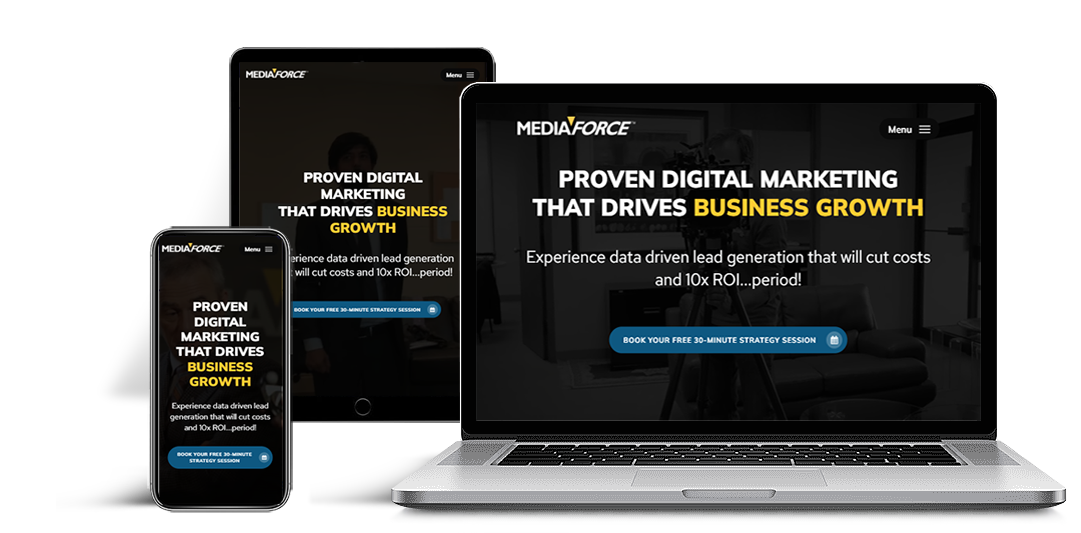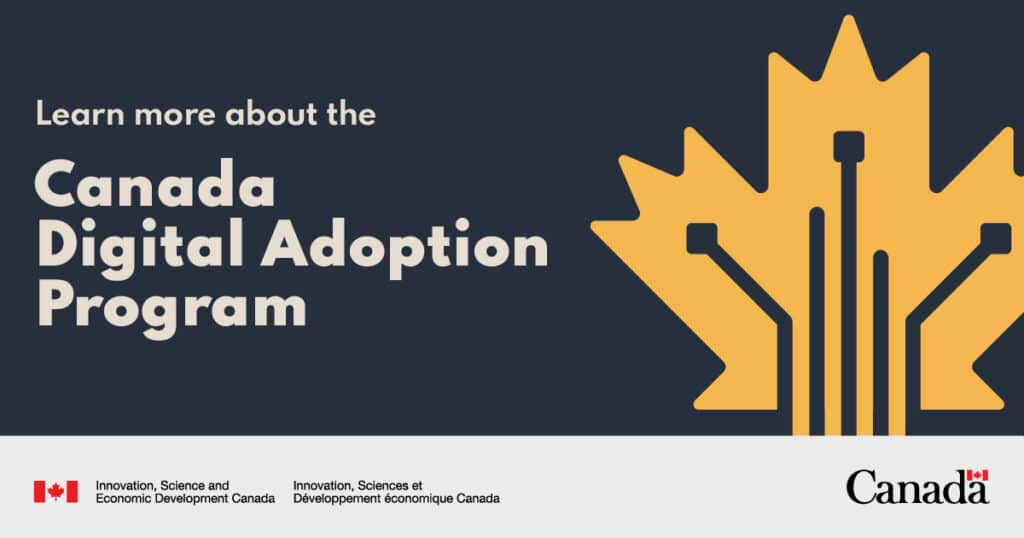Digital Marketing Trends and Strategies for 2024
 As we hurtle toward 2024, digital transformation shows no signs of slowing down, with groundbreaking technologies and trends like voice search, artificial intelligence, and augmented reality poised to redefine the field of digital marketing.
As we hurtle toward 2024, digital transformation shows no signs of slowing down, with groundbreaking technologies and trends like voice search, artificial intelligence, and augmented reality poised to redefine the field of digital marketing.To ensure your business stays at the forefront of this digital wave, it’s imperative to adapt to these emerging trends.
Remaining ahead of the curve in digital marketing isn’t merely a strategic advantage; it’s a necessity for maintaining competitiveness. It equips your business to connect with consumers through novel platforms and engagement methods, thereby expanding your reach and bolstering customer interactions.
As the business world undergoes rapid digital transformation, those neglecting digital marketing investment may encounter a substantial disadvantage. It’s not just about selling products or services; it’s about cultivating strong customer relationships. Leveraging various digital channels empowers businesses to offer personalized experiences, real-time communication, and customer loyalty – all indispensable facets of success in today’s digital-centric environment.
In essence, investing in digital marketing in 2024 equates to an investment in the future. As technology continues its evolution, consumer behaviors and expectations will inevitably evolve as well. A robust digital marketing strategy is your compass for navigating this ever-shifting digital terrain. So, as you map out your budget for the forthcoming year, remember this: the future is unquestionably digital, and your marketing strategy must align with this reality.
Key Digital Marketing Strategies for Success in 2024
Elevated Content Marketing
Content remains king in the digital marketing world. In 2024, this trend is expected to persist, with a heightened emphasis on interactive and video content to captivate audiences. Elevated Content Marketing represents the pinnacle of modern strategies aimed at captivating and engaging audiences in the ever-evolving digital landscape. This approach goes beyond conventional content practices, emphasizing the quality and depth of materials to establish brand authority. Strategic storytelling takes center stage, weaving compelling narratives that resonate emotionally with the audience across various content formats.
The Continued Rise of Video Marketing
The prominence of video content will continue to rise, becoming increasingly pivotal in digital marketing. Expect short-form videos, live streams, and narrative video content to take center stage. Video Marketing has become the driving force in the digital marketing world, transforming the way brands connect with audiences. Short and long-form videos continue to dominate, offering versatile options for engagement. Augmented Reality (AR) and Virtual Reality (VR) are now seamlessly integrated, providing immersive experiences. Strategic storytelling takes center stage, enabling brands to forge emotional connections and resonate authentically.
Video content extends beyond entertainment, delving into educational and experience related areas, reflecting diverse consumer preferences. Live streaming gains prominence, fostering real-time interactions and authenticity. Social media remains a pivotal platform for video distribution, emphasizing visually appealing and shareable content.
Personalization Redefined
Personalized marketing content, finely tuned to individual customer preferences and behaviors, is imperative. Anticipate even more refined personalization leveraging AI and data analytics. Personalized Marketing Content has evolved into a cornerstone of digital strategies, tailoring brand messages to individual preferences with unprecedented precision. Understanding the target audience is more nuanced than ever, as data analytics and Artificial Intelligence (AI) drive personalized experiences. Brands are strategically utilizing customer data to create content that resonates on a personal level, ensuring relevance and engagement.
The rise of AI-driven algorithms enables dynamic content tailoring, delivering customized messages across various touchpoints. This hyper-personalization extends beyond demographic segmentation to include real-time behavioral data, ensuring that content remains adaptive and responsive to changing customer needs.
Voice Search Optimization
As voice-activated devices and voice search proliferate, optimizing content for voice search is paramount for small businesses. Voice Search Optimization has become a pivotal element in digital marketing, transforming the way users interact with search engines. As voice-activated devices and virtual assistants continue to proliferate, brands are adapting their strategies to align with the evolving search landscape.
The focus on long-tail keywords and conversational language has intensified, as users increasingly employ natural, spoken queries. SEO strategies now prioritize semantic understanding, aiming to match user intent rather than relying solely on keyword matching. Brands are optimizing content for featured snippets and zero-click searches, recognizing the prominence of voice-activated devices in delivering concise and immediate information.

AI-Powered Chatbots
Chatbots and AI-driven customer service solutions are on the ascent, revolutionizing customer interactions, streamlining processes, and offering round-the-clock support. AI-Powered Chatbots have solidified their role as indispensable tools in customer interactions, transforming the way businesses engage with their audience. These intelligent chatbots, fueled by advanced Artificial Intelligence (AI) algorithms, offer 24/7 customer support, responding promptly to inquiries and providing valuable information. They have become the backbone of efficient and personalized customer service, allowing brands to enhance user experiences and build lasting relationships.
AI-driven chatbots have evolved beyond simple rule-based responses, now incorporating natural language processing to understand and interpret user queries with remarkable accuracy. This sophistication enables them to handle complex interactions, guide users through various processes, and even simulate human-like conversations.
Social Commerce Flourishes
Social media platforms are integrating e-commerce functionalities, facilitating direct product sales on these networks. This trend is projected to expand further. Social Platform E-commerce has emerged as a transformative force in the digital marketplace, revolutionizing the way consumers discover, engage with, and purchase products. Social media platforms have evolved beyond mere networking spaces, now serving as robust e-commerce hubs where businesses seamlessly integrate shopping experiences into users’ social interactions.
This evolution is characterized by immersive shopping features, such as in-app checkout options, augmented reality try-ons, and live shopping events. Social commerce relies on the power of social influence, with user-generated content, reviews, and influencer collaborations playing a central role in driving purchasing decisions.
Micro-Moments Matter
The concept of micro-moment marketing, those instances when consumers seek quick answers on their devices, has gained prominence. Businesses must be ready to provide pertinent content at these exact moments in time. Micro-Moments have become a cornerstone of marketing, shaping the way brands connect with consumers in a fast-paced digital landscape. These brief, intent-driven interactions occur when individuals turn to their devices to address immediate needs, whether seeking information, making decisions, or making purchases. Acknowledging and optimizing for these Micro-Moments is crucial for brands aiming to capture audience attention and drive meaningful engagement.
Mobile devices remain central to Micro-Moments, as consumers increasingly turn to their smartphones for quick answers and on-the-go decision-making. Marketers focus on delivering concise, relevant content that addresses specific user queries and needs, ensuring a seamless experience across various touchpoints.
Influencer Collaboration
Collaborating with niche market influencers remains an effective strategy for reaching highly targeted audiences. Influencer Collaboration has evolved into a dynamic and essential component of digital marketing, reshaping the way brands connect with their target audiences. Influencers, who command substantial followings on various platforms, are no longer just endorsers but strategic partners in marketing campaigns.
Micro-influencers, with niche and engaged audiences, have gained prominence, offering brands authentic and relatable connections with specific demographics. Collaborations extend beyond traditional sponsorships to include long-term partnerships, co-creation of content, and influencer-owned product lines.
Localized SEO
With more users relying on search engines for local information, optimizing for local search is critical for attracting nearby customers. Localized SEO has become so important for businesses aiming to thrive in specific geographical areas, emphasizing a hyper-local approach to online visibility. With users increasingly relying on search engines for local information, brands recognize the importance of optimizing their digital presence to cater to local queries and preferences.
Localized SEO strategies extend beyond traditional keyword optimization to include location-based keywords, ensuring that businesses appear in relevant local searches. Google Business Profile (GBP) optimization remains pivotal, with businesses actively managing and updating their profiles to provide accurate information, garner positive reviews, and enhance local search rankings.
Privacy and Data Compliance
The growing focus on data privacy necessitates transparency and adherence to data protection regulations such as GDPR and CCPA. In 2024, Privacy and Data Compliance have become one of the top considerations for businesses navigating the digital landscape. Heightened awareness and evolving regulations necessitate a meticulous approach to data handling, ensuring ethical practices and safeguarding user trust.
Stricter compliance frameworks, such as GDPR and emerging data protection laws, have prompted businesses to prioritize transparent communication regarding data usage. In 2024, companies are not only adhering to legal requirements but also embracing a proactive commitment to user privacy, building robust consent mechanisms, and empowering users with greater control over their data.
Sustainability and Social Responsibility
Businesses that integrate sustainability and social responsibility into their marketing strategies resonate with socially-conscious consumers. Sustainability and Social Responsibility Marketing have evolved from mere corporate initiatives to integral components of brand identity and consumer engagement. Recognizing the increasing importance of environmental and social concerns, businesses are incorporating sustainable practices into their core strategies.
Consumers are now more environmentally conscious and socially aware, prompting brands to adopt transparent and authentic sustainability practices. From eco-friendly packaging to carbon-neutral operations, businesses are aligning their values with those of socially responsible consumers.
 Mobile Optimization
Mobile Optimization
Given the ubiquity of mobile devices, optimizing websites and marketing content for mobile is indispensable. Mobile Optimization remains a cornerstone of digital strategies as the majority of online interactions occur through mobile devices. Acknowledging the dominance of smartphones in user experiences, businesses are prioritizing seamless and responsive design to ensure optimal performance across various mobile platforms.
The focus on mobile-first indexing by search engines emphasizes the importance of mobile optimization for search rankings. App optimization continues to gain prominence, with businesses fine-tuning their mobile applications for improved functionality and user engagement. Progressive Web Apps (PWAs) are increasingly adopted, providing users with app-like experiences directly through browsers.
User-Generated Content
Encouraging customers to create content related to your offerings and sharing it on social media remains a potent method for cultivating trust and engaging your audience. User-Generated Content (UGC) has solidified its role as a dynamic force shaping digital marketing strategies. With consumers increasingly seeking authenticity and relatability, brands leverage UGC to foster genuine connections and amplify their reach. Businesses actively encourage customers to create and share content, ranging from reviews and testimonials to photos and videos, turning their audience into brand advocates.
UGC not only provides a diverse range of perspectives but also serves as a powerful tool for building trust. As social proof becomes a driving force in purchase decisions, businesses showcase UGC across various platforms, creating a sense of community and authenticity around their brand.
Digital Display Advertising
Digital Display Advertising in 2024, remains a pivotal component of online marketing strategies, offering visually engaging and targeted promotional content across a spectrum of digital platforms. These visually dynamic ads appear on websites, social media, apps, and other online spaces, capturing the attention of users through images, videos, and interactive elements.
One of the key drivers of success in digital display advertising is programmatic advertising. Leveraging artificial intelligence (AI) and real-time bidding, programmatic ads enable advertisers to automate the buying process, ensuring efficient and data-driven ad placements. This strategic approach enhances targeting precision, allowing advertisers to reach specific demographics with personalized content.
In conclusion, the digital marketing landscape in 2024 demands a multifaceted and adaptive approach, underpinned by key strategies that reflect the dynamic nature of consumer behavior and technological advancements. AI integration, from data analytics to personalized content creation, stands as an overall key for success, enabling marketers to harness insights and engage with audiences on a deeper, more individualized level.
Need help? Contact us for a Free Consultation!













